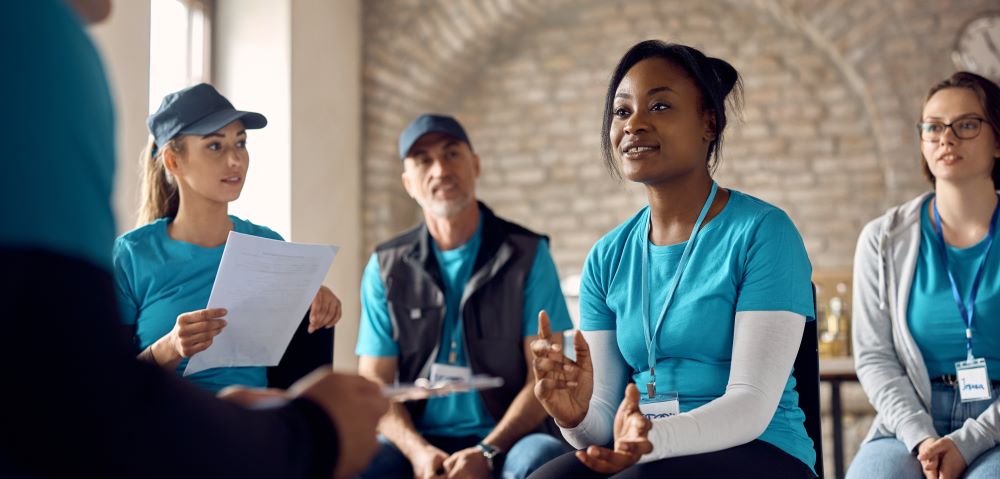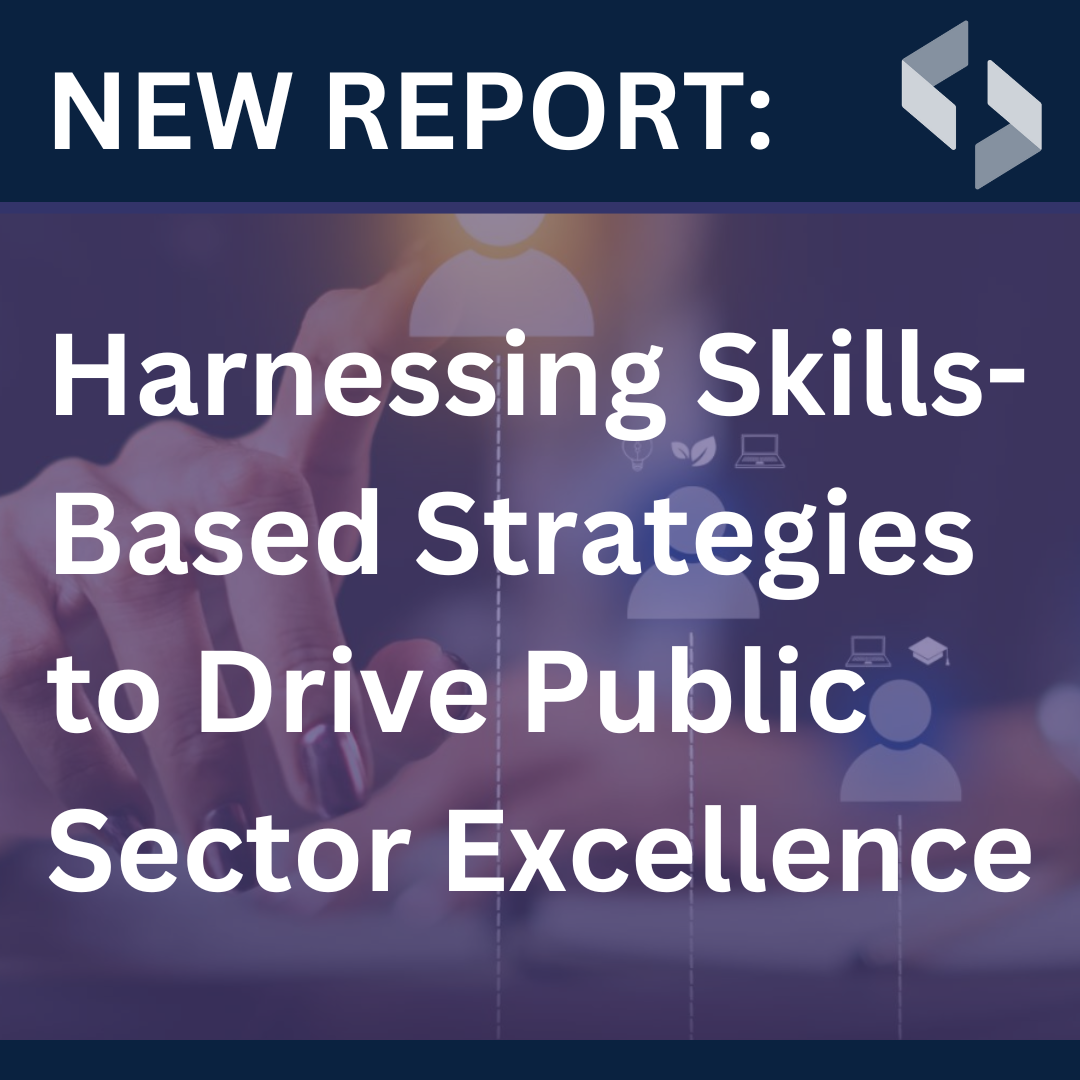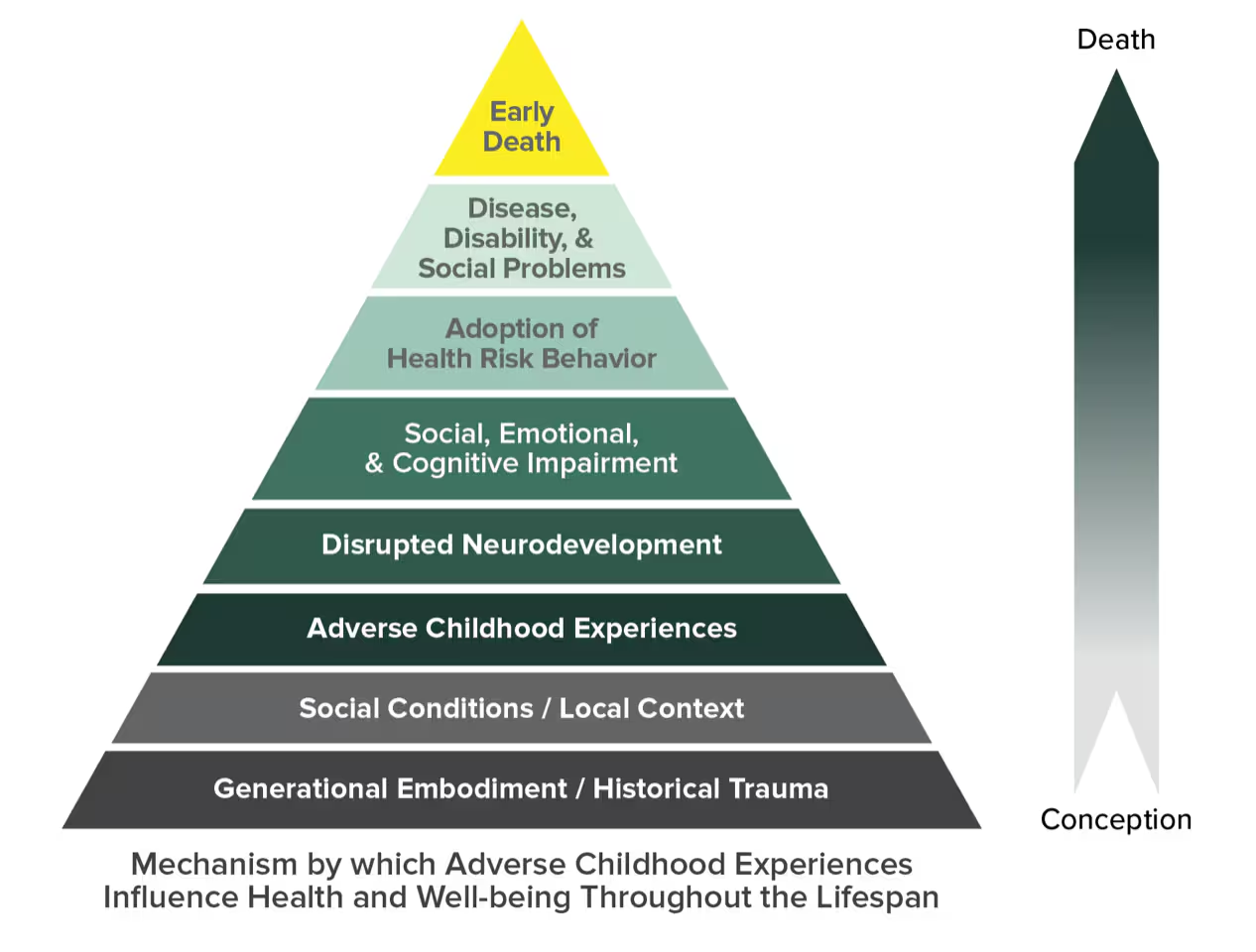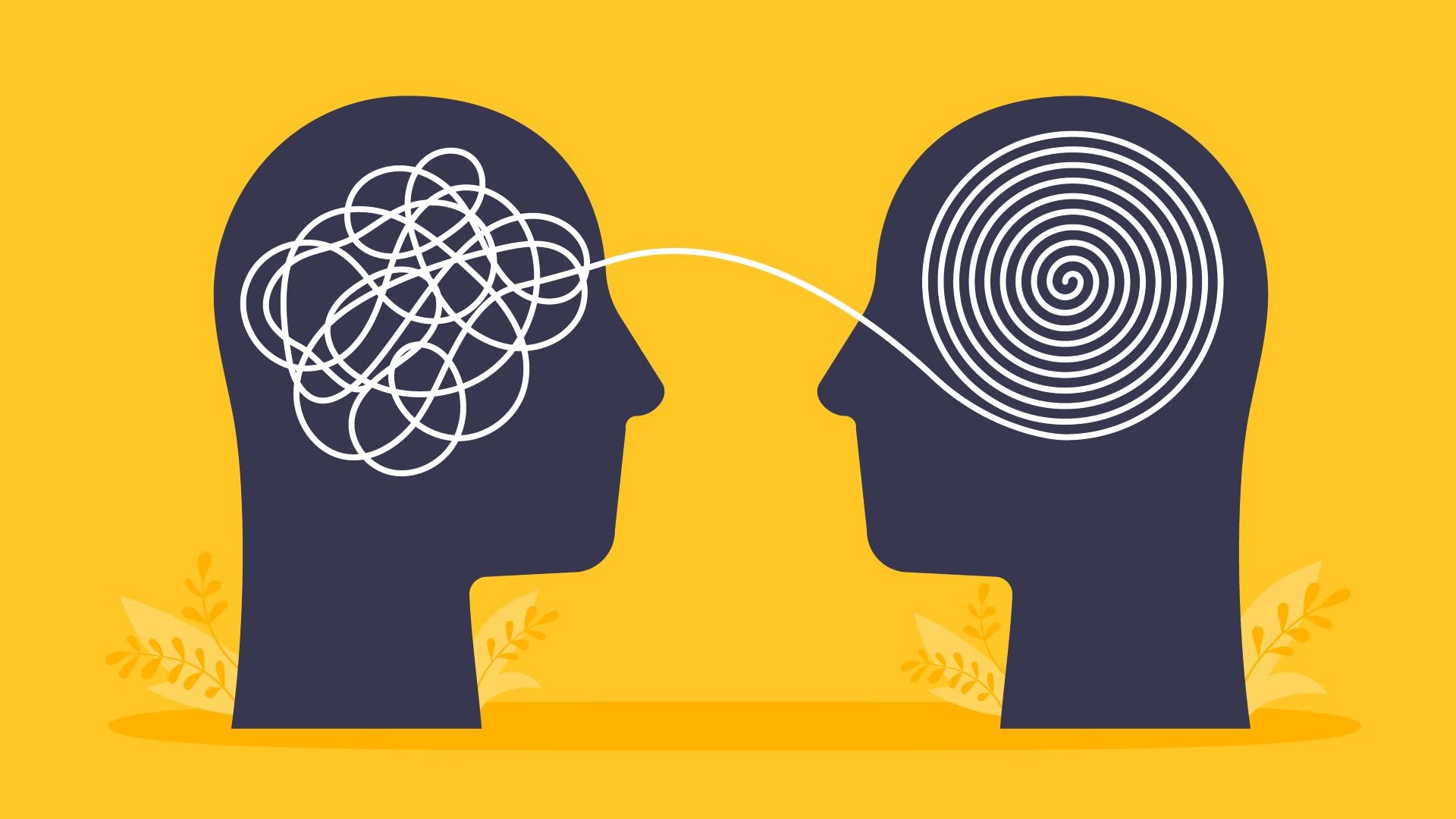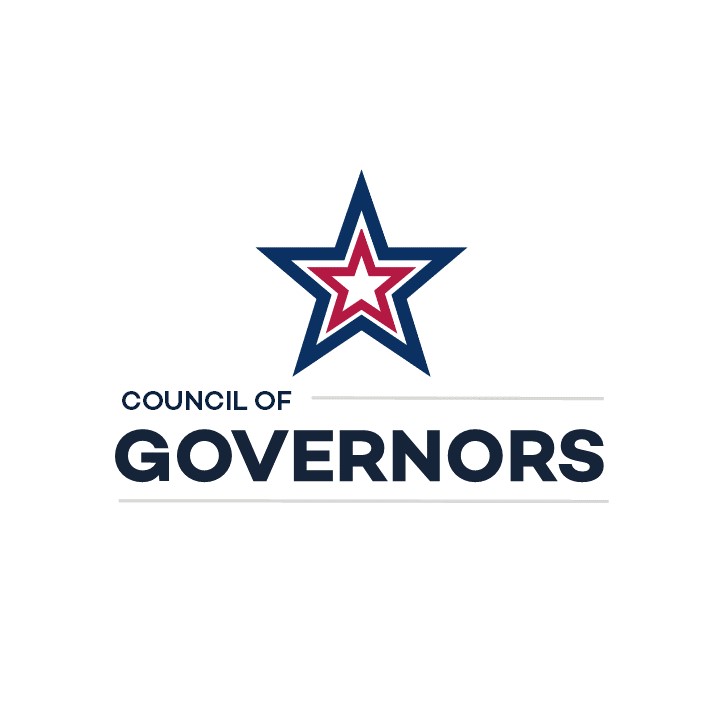Since launching the Disagree Better initiative last July, National Governors Association Chair Utah Governor Spencer Cox has been traveling around the country to raise awareness — hosting NGA events in New Hampshire and Colorado designed to show that Americans can work through our differences to find solutions to the most difficult problems facing our states and our country.
This week, as the nation’s Governors meet in Washington, D.C., for the 2024 NGA Winter Meeting, Governor Cox led several public forums to speak with thought leaders representing academia, philanthropy, business and government about the good work already happening and the need for more Americans to engage with the initiative to help address toxic polarization in America.
The Economic Club of Washington, D.C.
Governor Cox and Maryland Governor Wes Moore participated in a discussion at The Economic Club of Washington, D.C., on “The State of Bipartisanship in America.” PBS NewsHour’s Judy Woodruff moderated the conversation, which aired on PBS Books and will be repeated March 11 at 8 p.m. ET as part of the station’s Civic Learning Week coverage.
Governors Cox and Moore talked about the loss of community in America that has led people to opt out of society and opt in to insulated realities – watching news sources not to be informed, but to find validation. The Governors also discussed the impact of elevating political performers over those interested in addressing the challenges before us. The impact is acutely evident at the federal level, and Governors must deal with the consequences of dysfunction. Governor Moore noted that Governors don’t have the luxury of political performance because they have to achieve concrete results on a daily basis. Governor Cox added that our old way of looking at politicians through a left/right lens needs to change; instead, we should view leaders as builders or destroyers – and then reward the builders. With a message of civil dialogue as one of the best ways to seek solutions and compromise, the Governors then ran through what this could look like on polarizing issues such as abortion, DEI, immigration and gun control. Watch the entire session.
George Washington University
Governor Cox’s Disagree Better Initiative has prioritized visiting university campuses to meet with students and teach young Americans about healthy conflict and fostering open debate and free expression in higher education. Governor Cox visited two universities prior to the start of the NGA Winter Meeting to connect with students about ways to bring healthy conflict – the kind that leads to solutions rather than endless bickering – back to politics and the public square.
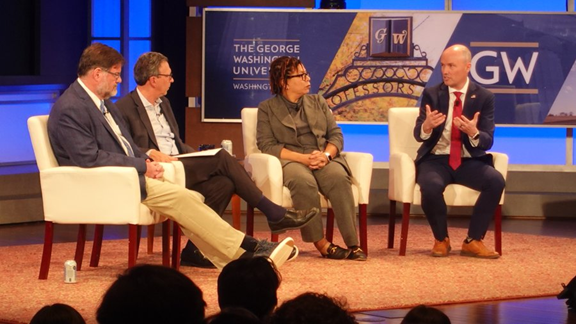
At George Washington University (GW), Governor Cox joined media voices Jonah Goldberg and Michel Martin for a discussion titled, “Disagree Better: How Politicians, the Public and the Press Can Turn Down the Heat.” The conversation, moderated by GW Professor Frank Sesno, was the second in the Sesno Series and aired on Sirius/XM radio in association with GW’s College of Professional Studies and the Bipartisan Policy Center.
Students representing voices from the left, right and center shared their opinions on some of the most topical issues of the day – expressing their concerns about the negative discourse permeating many political conversations. In response, Governor Cox sharing his belief that we need to understand the hearts and minds of the people we speak with, try to form relationships and ask thoughtful questions instead of demonizing those we may disagree with. Governor Cox also urged students to use the power of persuasion, sharing his belief that the parties have given up on persuading others, favoring an “all or nothing” attitude.
National Cathedral
Governor Cox and Governor Moore held a discussion at the National Cathedral titled “With Malice Toward None, With Charity for All.” Governor Cox then led a panel discussion about the Disagree Better initiative with ABC’s Donna Brazile, attorney Rachel Brand, legal scholar Ruth Okediji and nonprofit leader Tim Shriver. Columnist Peter Wehner and Joshua DuBois, Director of Faith-Based and Neighborhood Partnerships for the Obama Administration, also participated in the conversation.
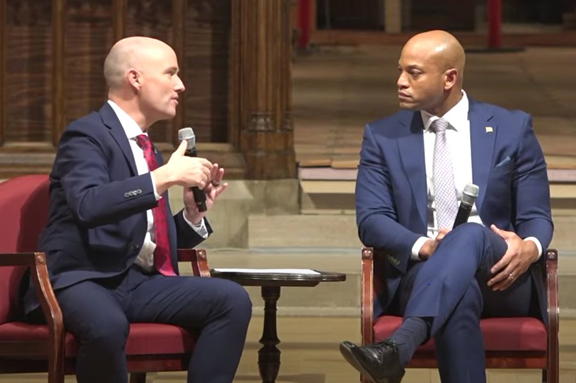
Governors Cox and Moore reflected on their friendship and shared examples of the strong working relationships they share with colleagues of other political parties, noting the value of elected officials forming personal friendships. These experiences prompted Governor Cox’s decision to ask Governors to record video messages with an elected official of the opposite party. Research shows videos of this nature measurably reduce partisanship, and both Governor Cox and Governor Moore have recorded videos with officials of the opposite political party to support Disagree Better.
The Governors also highlighted their shared belief that common ground can be found through service and volunteerism. Governor Moore stated he thinks “service will save our nation,” and noted the recent launch of Maryland’s Service Year Option, the first-in-the-nation public service year program for high school graduates. Maryland is expanding service and volunteerism statewide, creating new pathways of service to meet community needs, enhance workforce development, and promote preparedness for both higher and vocational education.
Governor Cox praised Governor Moore’s service initiative, noting he’s working to advance similar legislation in Utah. Governors Cox and Moore explored Utah’s longstanding reputation for leading the country in public service and volunteerism, stressing that service helps bind people together, allowing Americans to see individuals instead of party lines and division, while also fostering community and common ground.
This event was sponsored by Deseret Magazine, which recently dedicated a special double issue to addressing America’s polarization problem, and held in partnership with the Wheatley Institute at Brigham Young University and Wesley Theological Seminary.
American University
“All of us, we have to demand more; we have to expect more.”
Governor Spencer Cox
Governor Cox visited American University to join NGA Vice Chair Colorado Governor Jared Polis in a conversation on the topic: “Democracy in Peril – Can America Overcome its Divisions?” Former NGA Chair Maryland Governor Larry Hogan moderated the discussion.
The Governors agreed “it’s going to take all of us” – not just elected officials but media, community groups and voters of all ages – to overcome toxic polarization. Governor Cox identified loneliness as a chief driver of political division. Citing the Andrew Putnam book “Bowling Alone,” Governor Cox noted declining participation in institutions – including churches, and civic organizations – that used to bind Americans. Seeking connection, people turn to the toxic combination of politics and social media: “As we’ve gotten away from those institutions, whether it’s religious or volunteer institutions, we’ve become withdrawn, and we have fewer real friends than ever before. But we’re wired for connection. We need it. So we start looking for tribes, and we’re finding unhealthy tribes. We hate the same people together on Facebook or Twitter, and that’s where we’re finding unhealthy connections.”
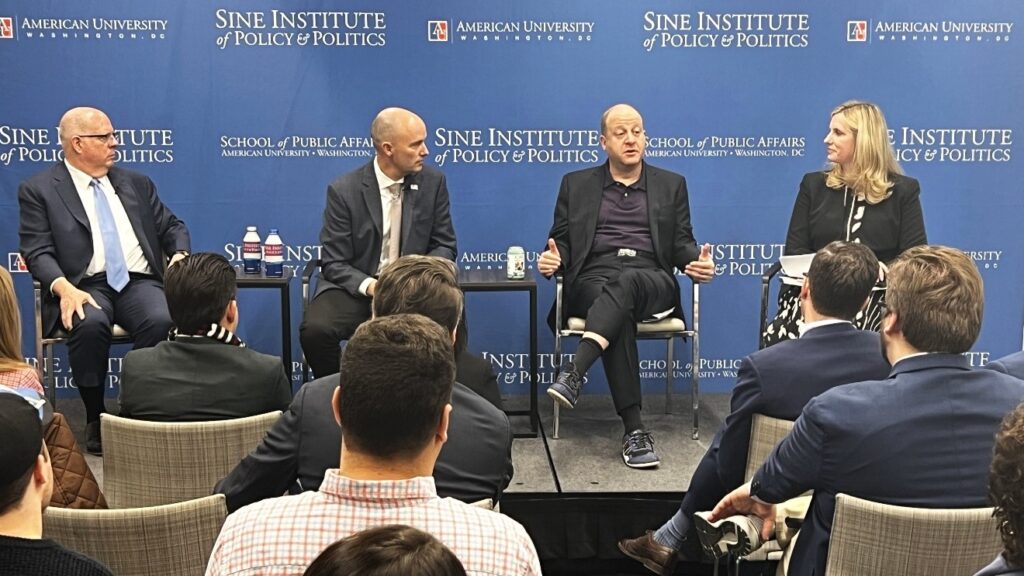
Disagree Better isn’t just about civility, Governor Cox emphasized. “It’s not just being nice to each other, although we certainly need more of that,” he explained. “It’s about disagreeing passionately and staying true to what you believe in, but not tearing down the other person, not using contempt to dehumanize the other side.”
Another misconception about Disagree Better, Governor Polis noted, is the idea that “it means everybody should be like a moderate and try to slice the issue in the middle.” In reality, Governor Polis stated, debate is valuable: “It’s very much okay and, in fact, a treasured part of our democracy that people have profound disagreements. It doesn’t mean that you have to abandon any of your principles or opinions. But it’s about how you disagree – [having] those discussions in a way that elevates them, rather than attack the motives of the other person or call them unAmerican.”
When it comes to what the students in the audience can do to help, Governor Cox encouraged them to be mindful of what they post on social media, “read deeply and widely” to ensure they are consuming accurate news, get involved in Braver Angels and other organizations working to tackle toxic polarization, and to evaluate political candidates not only on their policy positions but on whether their conduct as candidates is constructive and respectful.
You can watch the discussion here.
POLITICO’s 2024 Governors Summit
In addition to these conversations, POLITICO Live welcomed a bipartisan group of Governors to engage in conversations about state policy efforts around issues, including AI, economic development, infrastructure, housing and energy. Under the framework of exploring how the “laboratories of democracy are working overtime and ushering in a new era of policy making,” POLITICO moderators held one-on-one interviews on initiatives Governors are leading. Below is a selection of Governor’s remarks. Learn more about the event here.



